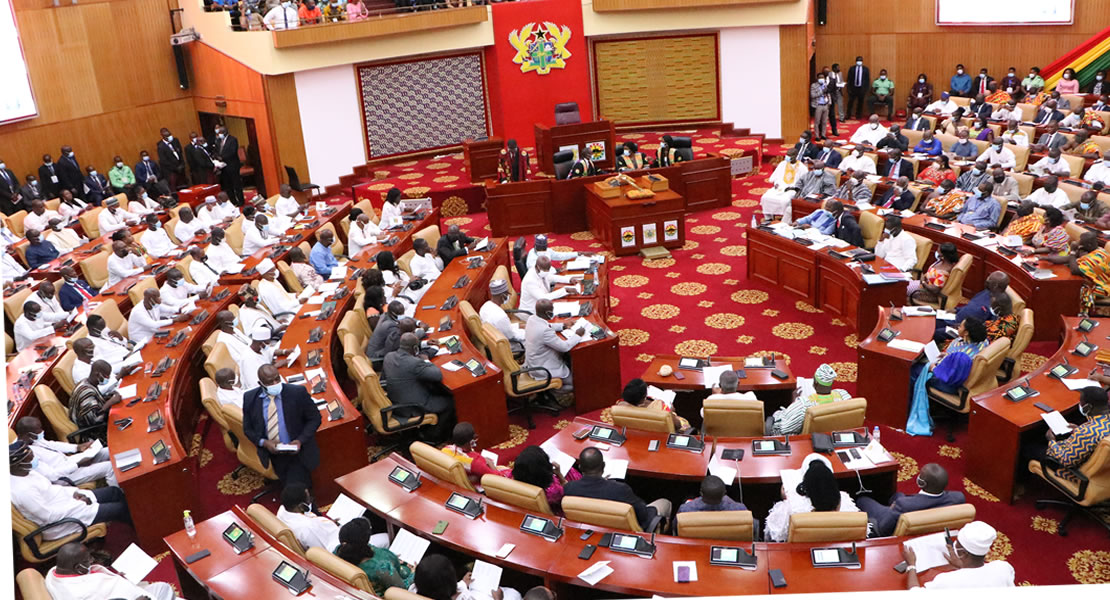
Women’s groups are mounting pressure on two parliamentary select committees for the speedy passage of the Property Rights of Spouses Bill (PRSB) and the Interstate Succession Bill (ISB) which are both before the House.
The two bills, which were first laid before the house in October 2009, deal with spousal property rights at death and at divorce and both recognise and deal with the contribution made by spouses towards the acquisition of property.
The report on the ISB is presently with the Constitutional, Legal and Parliamentary Affairs and Gender and Child Committees (CLPAC) for a second reading while the PRSB is yet to be reviewed by the CLPAC and the Gender and Child Committees (GCC) jointly.
To this end, the Property Rights of Spouses Coalition, made up of like-minded non-governmental organisations, organised a two-day consultative meeting in Akosombo in the Eastern Region for members of CLPAC and GCC to brief them on the need to ensure the speedy passage of the two bills.
The meeting was sponsored by the United Nations Development Programme (UNDP).
The group also organised a follow-up meeting with male parliamentarians on the PRSB as part of its efforts to sensitise them to the bill.
The Chairperson of the Coalition, Mrs Sheila Minkah-Premo, who briefed the parliamentarians, said issues relating to the property rights of spouses in Ghana had been problematic for a long time as the country had a plural legal system and the laws on marriage were regulated by the customary law, Islamic law and by statute.
She said under each of those regimes, females were usually at the losing end when it came to the sharing of properties acquired at the end of a marriage, irrespective of the type of marriage, be it customary marriages, marriages governed by the Marriage of Mohammedans Ordinance (CAP 129) and marriages under the Marriage Ordinance (CAP 127).
Mrs Minkah-Premo said the coalition’s action had also been necessitated by the fact that many women were married under the Customary and Islamic marriages, which were potentially polygamous, and that had increased their vulnerability in terms of adequate protection of their property rights.
According to her, Article 22 of the 1992 Constitution calls on Parliament to enact legislation to regulate the property rights of spouses. The two bills she said were aimed at achieving this obligation.
She expressed the expectation of the Coalition that the bills would be passed into law by the end of the first quarter of 2012.
The Ranking Member for the GCC, Ms Gifty Ohene-Konadu, in a remark, urged members to remove obstacles that would pave the way for the bills to be passed into law.
She stressed that there should be a way of solving the delay of the passage of the two bills, especially the PRSB, and promised to get additional information on how the coalition could forge ahead to ensure its passage.
At the Akosombo meeting, it was identified that most males in Parliament had problems with the PRSB and Mr Joe Osei Wusu of the CLPSC stated that the problem was with the contents of the bill which needed to be addressed to ensure its passage.
He indicated that there were many people who had other children and partners outside the matrimonial home who also had an interest in their properties. He referred to section 13 of the PRSB on the provisions on the distribution of property which should be re-examined.
He also referred to the interpretation section which regarded housework and child rearing section as a form of contribution.
He was however of the view that those were the responsibilities of wives in marriage, adding that the provisions in section 13 and section 10 on joint properties should be examined and amended.
Mr Osei Wusu also had difficulty with how one could agree with a spouse that property was to be acquired separately.
Another member also raised concerns about the provisions on cohabitation in the PRSB, saying that the provisions are not equitable since cohabitees whose men are married under the Marriage Ordinance cannot benefit under the law but those whose male partners are married under customary law can benefit.
The Majority Leader in Parliament, Mr Cletus Avoka, who said most men, including parliamentarians were apprehensive about the two bills as they view them as being in favour of women, advised that the bill was not intended for a particular group of people but was intended to provide a level playing field and that “lawyers and judges should understand that they should not be influenced by the breakfast they take or the type of relationship they have before dealing with an issue in court.”
He reminded members and the Coalition that he deemed the bill very important because it does affect almost every household in the country and as the leader of Parliament and Chairman of the Business Committee of Parliament he would lend his support to the passage of the bill.
He prayed that when it came before Parliament for discussion, members would make themselves available for the amendment of problematic clauses.
He said there was the need to convince members because of their different backgrounds and orientations, and impressed upon all the members to be proactive while in Parliament for the discussion of the bill.
Source: Daily Graphic